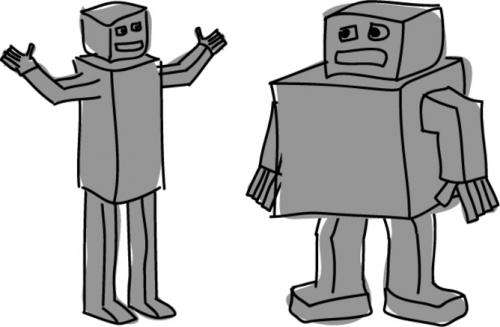Sip on this: Do diet drinks make you fatter?

Diet drinks are no help in the fight against obesity and may actually encourage over-eating, according to a US academic who recently argued this point in the journal Trends in Endocrinology and Metabolism.
Susan Swithers reviewed studies that suggest normal or mildly overweight people who consumed artificially-sweetened drinks were more likely to gain weight when compared to those who did not.
The studies showed that, in two separate groups of adolescents, drinking artificially-sweetened drinks was associated with increased body mass index and body fat.
This suggests these drinks don't even help people maintain normal body weight and may, in fact, be detrimental. But Swithers recognises that this association may be a case of "reverse causality" – people who are genetically prone to obesity are more likely to drink low-calorie drinks to limit calorie intake.
So, it's the obesity tendency that leads people to drink artificially-sweetened drinks, not that artificially-sweetened drinks lead to obesity.
A better way
To exclude the possibility of reverse causality, it's necessary to undertake a randomised prospective study. The ideal would be to recruit about 200 volunteers and randomly assign each volunteer to a group that will drink only diet drinks or to a group than drinks only sugared drinks. We could then observe the effect on their weight.
The paper quotes one such study that examined 641 boys and girls. For 18 months, the children were asked to drink either a single artificially-sweetened drink or a single sugar-sweetened drink every day.
After 18 months, children who had drunk the artificially-sweetened drink gained less weight and had smaller increases in fat mass when compared to the children who had drunk the sugar-sweetened drink.
This suggests that the previously noted association of obesity with drinking diet drinks is the result of spontaneously obese individuals trying to take evasive action. In other words, it is a case of reverse causality.
So, what is the evidence that artificial sweeteners could make you fatter?
What the rodents did
In a different paper by the same author published in the journal Behavioural Neuroscience earlier in the year, she reported the results of a rat study she undertook with her colleagues.
They measured the weight gain in rats after feeding them yoghurt supplements sweetened with saccharin (an artificial sweetener) or yoghurt sweetened with glucose.
The authors found that when the rats were consuming a low-fat "healthy" diet, there was no difference in weight gain between the two groups of rats. But when the rats had a "Western" high-fat, high-sugar diet, the ones being supplemented with artificially sweetened yoghurt put on more weight than the others.
These effects were more pronounced in female rats from strains known to be susceptible to diet-induced obesity.
So this effect, if present in humans, will be more dramatic in genetically obese-prone women on a high-energy western diet. The study may also explain why the prospective study on children did not support the hypothesis; the children were not on a high-energy diet and the group contained both males and females.
Becoming desensitised
But how could artificial sweeteners encourage over-eating in some circumstances? According to Swithers, artificial sweeteners weaken the normal response of the body to the arrival of glucose in the system.
It receives confusing signals: there's a sweet taste but it's not accompanied by the usual effects of glucose such as the suppression of hunger mediated by glucose metabolism in the brain or the stimulation of appetite-suppressing hormones from the small bowel.
After a period of ingesting sweet-tasting but calorie-free drinks, the body may no longer respond to glucose containing foods with these appropriate appetite-suppressing mechanisms.
This may explain the finding that body weight increases only when sweet-tasting, calorie-containing foods are consumed. We normally rely on the appetite suppressing effects of glucose to limit our intake of these foods and will overeat if the response has been blunted.
Imaging studies of the human brain have shown that sucrose (table sugar) but not the artificial sweetener sucralose, activates brain areas related to reward of pleasantness and in other taste-related areas of the brain.
So what does all this mean for you?
Swithers ends her piece with a list of remaining questions to be answered and calls for more research. We clearly do need to learn more about this phenomenon.
But in the meantime, we should all (but especially obesity-prone females) review our consumption of artificially-sweetened drinks as they probably aren't helping our fight to stay lean.
As always, plain water is the best drink.
This story is published courtesy of The Conversation (under Creative Commons-Attribution/No derivatives).
![]()


















